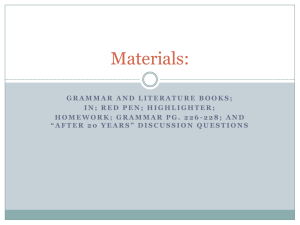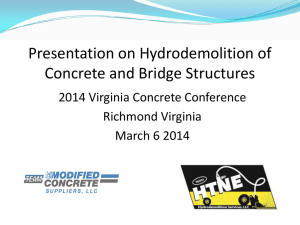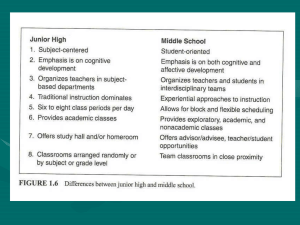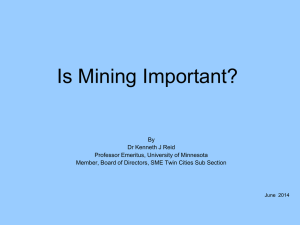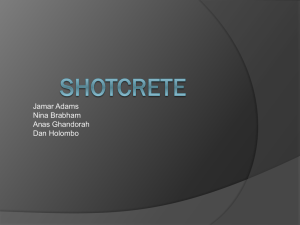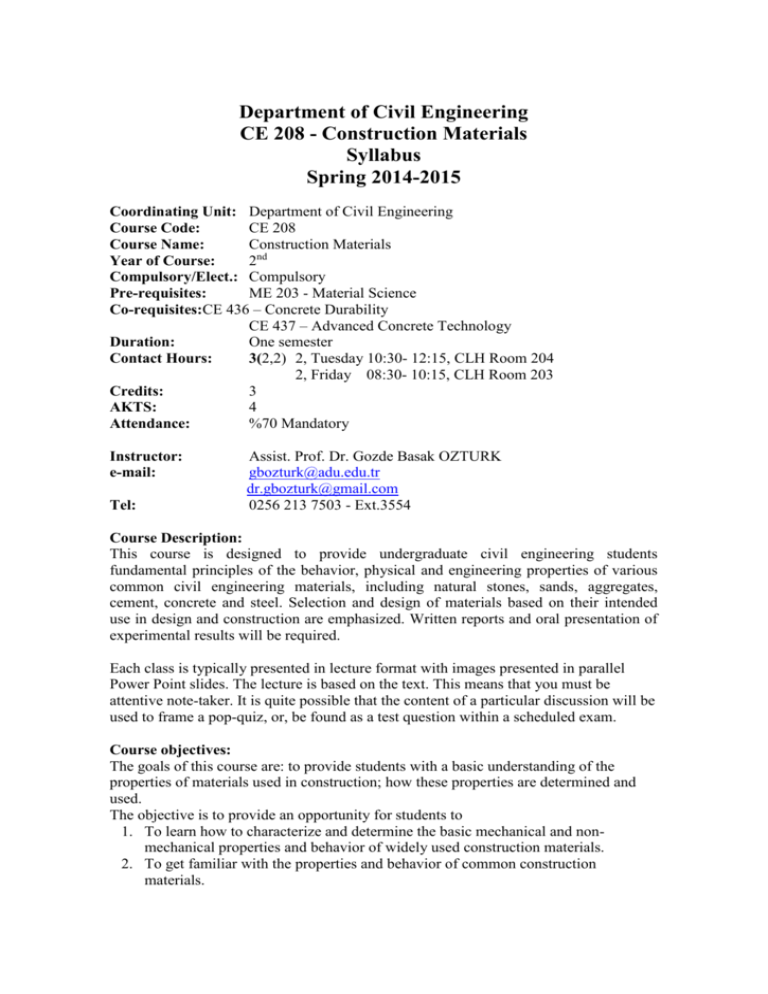
Department of Civil Engineering
CE 208 - Construction Materials
Syllabus
Spring 2014-2015
Coordinating Unit: Department of Civil Engineering
Course Code:
CE 208
Course Name:
Construction Materials
Year of Course:
2nd
Compulsory/Elect.: Compulsory
Pre-requisites:
ME 203 - Material Science
Co-requisites:CE 436 – Concrete Durability
CE 437 – Advanced Concrete Technology
Duration:
One semester
Contact Hours:
3(2,2) 2, Tuesday 10:30- 12:15, CLH Room 204
2, Friday 08:30- 10:15, CLH Room 203
Credits:
3
AKTS:
4
Attendance:
%70 Mandatory
Instructor:
e-mail:
Tel:
Assist. Prof. Dr. Gozde Basak OZTURK
gbozturk@adu.edu.tr
dr.gbozturk@gmail.com
0256 213 7503 - Ext.3554
Course Description:
This course is designed to provide undergraduate civil engineering students
fundamental principles of the behavior, physical and engineering properties of various
common civil engineering materials, including natural stones, sands, aggregates,
cement, concrete and steel. Selection and design of materials based on their intended
use in design and construction are emphasized. Written reports and oral presentation of
experimental results will be required.
Each class is typically presented in lecture format with images presented in parallel
Power Point slides. The lecture is based on the text. This means that you must be
attentive note-taker. It is quite possible that the content of a particular discussion will be
used to frame a pop-quiz, or, be found as a test question within a scheduled exam.
Course objectives:
The goals of this course are: to provide students with a basic understanding of the
properties of materials used in construction; how these properties are determined and
used.
The objective is to provide an opportunity for students to
1. To learn how to characterize and determine the basic mechanical and nonmechanical properties and behavior of widely used construction materials. 2. To get familiar with the properties and behavior of common construction
materials. 3. To understand and master the fundamental knowledge of construction materials.
Learning Outcomes
Upon completion of this course, students should be able to:
1. achieve mastery of the fundamental knowledge of construction materials.
2. demonstrate ability to make selection of materials based on their properties,
behavior and intended use in design and construction.
3. demonstrate understanding of the state-of-the-art concrete technology and the use
of different types of cement and admixtures for producing good quality concrete.
4. have experience in writing reports and making presentations.
Student Assessment
Midterm Exams/Projects
Final Exam
Projects/Presentations
40 %
40 %
20 %
Learning Outcome Assessment
Reports and oral presentations. Midterm and final examination. Quizzes Pedagogical Methods
Lecture
Guest speakers
Case study
Role playing
Student presentation
Research project
Simulation game
Exercises and problems
Service learning
Internship
Field study
Company visits
e-learning
Independent study
Others:____
✔
✔
✔
✔
Text Book
1. M.S. Mamlouk, J.P. Zaniewski, Materials for Civil and Construction Engineers,
3/E, Pearson, Prentice Hall, 2011.
References
1. T.Y. Erdoğan, Materials of Construction, ODTÜ, Ankara, 2002.
2. P.K. Mehta, P. J. M. Monteiro, Concrete: Microstructure, Properties, and
Materials, Mc Graw-Hill Professional, 2005.
3. A.M. Neville, Properties of Concrete, Pitman Pub., London, 1981.
4. A.P. Mills, H.D. Hayward, L.F. Rader, Materials of Construction, Their
Manufacture and Properties, Wiley, New York, 1955.
5. M.L. Gambhir, Concrete Technology, Tata McGraw-Hill Pub. Co., New Delhi,
1986.
6. N. Jackson, Civil Engineering Materials, Macmillan, London, 1976.
7. S. Mindess and J.F. Young, Concrete, Prentice-Hall, Englewood Cliffs, NJ.
8. T.Y. Erdoğan, Admixtures for Concrete, ODTÜ, Ankara, 1997.
9. T.Y. Erdoğan, Beton, ODTÜ, Ankara, 2003 (in Turkish).
10. T.Y. Erdoğan, Sorular ve Yanıtlarıyla Beton Malzemeleri, THBB, İstanbul, 2005
(in Turkish).
11. W.H. Taylor, Concrete Technology and Practice, American Elsevier Pub. Co.,
New York, 1969.
Weekly Lecture Topics
Week Dates
Lecture Topic
1
09-Feb - 13-Feb
1. Introduction to course syllabus
2
16-Feb - 20-Feb
2. Basic concepts
3
23-Feb - 27-Feb
3. Nature of materials
4
2-Mar - 6-Mar
4. Steel
5
9-Mar - 13-Mar
5. Steel
6
16-Mar - 20-Mar
6. Aluminum
7
23-Mar - 27-March 1st MIDTERM EXAMINATION / PROJECT
8
30-March - 3-Apr
7. Aggregates, Portland cement
9
06-Apr - 10-Apr
8. Concrete
10
13-Apr – 17-Apr
9. Lime, Gypsum, Wood
11
20-Apr - 24-Apr
10. Masonry, Clay bricks
12
27-Apr - 01-May
13
04-May - 09-May
11. Asphalt
14
11-May - 15-May
12. Ferrous metals, alloys, and concrete reinforcement
15
18-May - 22-May
13. Polymers, Composites
16
22-May – 05-June
2nd MIDTERM EXAMINATION / PROJECT
FINAL EXAMINATION
Some Important Dates
Date
Importance
February 09, 2015
Classes Begin
February 09 – 13, 2015
Add-Drop and Advisor Approvals
April 23, 2015
National Holiday (National Sovereignty
and Children's Day)
May 1, 2015
Labor and Solidarity Day
May 19, 2015
National Holiday
(Commemoration of Atatürk & Youth and
Sports Festival)
May 22, 2015
Last Day of Classes; undergraduate and
graduate programs
(except for thesis work and specialization
field courses)
May 22 – June 5, 2015
Final examinations
June 12, 2014
Last day to submit the final grades (by
24:00)
June 12, 2014
Announcement of final grades
June 13 – 21, 2015
Resit examinations
June 26, 2015
Submission of the grades of resit
examinations
Course Website: This course’s main communications platform will be course’s link on
instructor’s individual webpage.
Attendance: at least %70 regular class attendance is expected and mandatory.
Late hand-in: Due dates will be set at the time of assignment and are published on the
question sheet. Assignments and reports must be submitted on time. Late submittal
(without prior instructor approval) will incur the following grade adjustments: -5% per
day (including weekends) until the 7th day after deadline. After that point, you will
receive 0% (an F) for the missed hand-in.
Academic Honesty: Plagiarism, cheating, and facilitating dishonesty. Occurrences of
any of those practices will be dealt with according to university policy.
Original write-up of homework is required by each group/individual (as applicable) for
a given assignment or report.
Classroom Behavior: It is not permitted to consume food
in the classroom. Smoking is also prohibited. Students are strongly encouraged to turn
all cell-phones or other electronic communications devices during class time.
Note: Cell phones and PDA’s must be turned off during class and exams. You will be
asked to leave them on instructor’s desk during examinations.
Any disruptive behavior will be sanctioned appropriately.
No component of the course (printed and online materials, lectures, labs,
discussion sessions etc.) may be recorded (audio or video), broadcast or republished without the written consent of the instructor.

